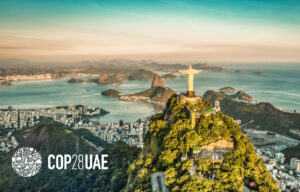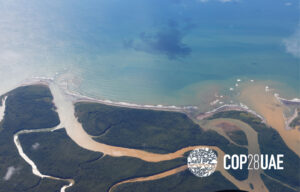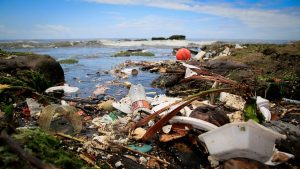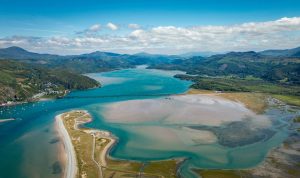New article published on a conceptual framework for the management of resources in a source-to-sea continuum

A new open access paper presents a conceptual framework to guide the design of future initiatives aimed at supporting green and blue growth in source-to-sea systems. It has been developed by a team of researchers in close collaboration with the Action Platform on Source to Sea Management.
Current approaches to environmental protection and development on land, along rivers and coastal zones, and in marine environments are struggling to effectively promote sustainability. This is partly due to limited understanding of how ecosystems are linked, and partly due to fragmented governance and management arrangements in the continuum from source to sea that hinders cooperation and strategic overview across connected systems. Meanwhile, the key flows that link ecosystems are being altered by climate change and by an intensification of human activities, which are also expanding offshore where management regimes are typically weak or non-existent.
This paper presents a conceptual framework to guide the design of future initiatives aimed at supporting green and blue growth in source-to-sea systems. It includes a taxonomy of key flows, elements to guide analysis and planning and a common framework for elaborating a theory of change. Assembling a governance baseline and engaging stakeholders are critical elements in the approach. The conceptual framework builds on recent experiences of pro-sustainability action in source-to-sea systems around the world, and the paper applies the theory of change framework to selected case studies in order to develop further insights.
The authors are Jakob Granit, Stockholm Environment Institute / Global Environment Facility Scientific and Technical Advisory Panel; Birgitta Liss Lymer, Stockholm International Water Institute (SIWI); Stephen B. Olsen, University of Rhode Island; Anna Tengberg, Lund University; Sulev Nõmmann, Stockholm Environment Institute, Tallinn Centre; and Torkil J. Clausen, Stockholm International Water Institute. This research was carried out under the auspices of the Scientific and Technical Advisory Panel of the Global Environment Facility (GEF). It benefitted from an extensive peer review process engaging the GEF partnership and members of the Action Platform on Source to Sea Management. The authors would like to acknowledge the contributions made by Ivan Zavadsky, ICPDR; Maria de los Angeles Carvajal, SuMar – Voces por la Naturaleza; David Groenfeldt, Water-Culture Institute; Karin Bjerner, the Swedish Agency for Marine and Water Management; and Caspar Trimmer, SEI. This work was supported by the Global Environment Facility (GEF) and Sida, and coordinated through the Secretariat of the Action Platform on Source-to-Sea Management.
Access the journal paper on the website of the journal Water Policy
Building on this work, an Advisory Document from the Scientific and Technical Advisory Panel (STAP) of the Global Environment Facility (GEF) provides policy recommendations on how GEF investments can be further scaled up to assist the efforts of countries to assist source-to-sea priorities in an integrated way. You can find out more about this work on the STAP website.







